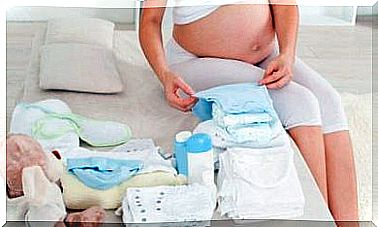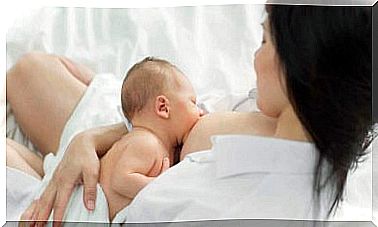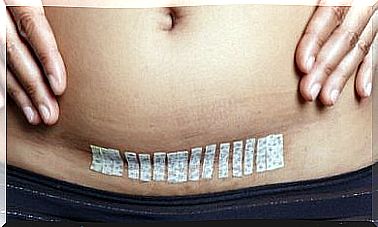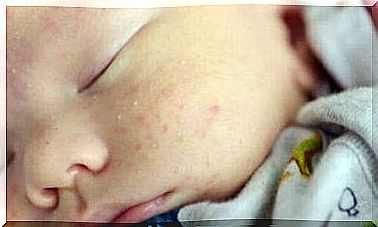Why Do I Have Itchy Skin During Pregnancy?
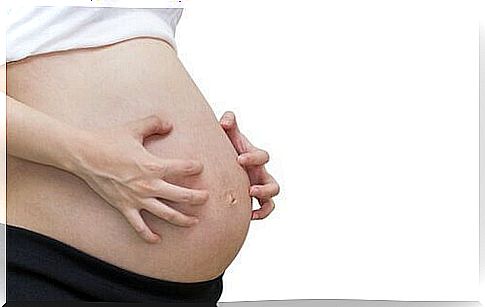
Each condition is specific to the different stages of pregnancy, but if you feel your obstetrician’s recommendations, these changes in the skin during pregnancy will not be a big challenge.
Pregnancy dermatosis
There are conditions in the skin that occur during pregnancy that have certain characteristics.
They are all completely normal. Unless, you discover something with unusual or they cause great risk to yourself, you do not need to seek out a healthcare professional.
We will now describe the most common conditions that can cause itchy skin during pregnancy.
Pregnancy herpes
The incidence is very variable, and it is seen most in women who have several children, and a predominant percentage (70 percent) occurs in white women.
It begins with annoying itching that sooner or later turns into blisters. It usually occurs on the abdomen, near the navel.
Treatment for gestational herpes:
This condition is autoimmune-related and should be treated with corticosteroids or antihistamines. Even after birth, the blisters can remain for a few weeks, so treatment must be continued.
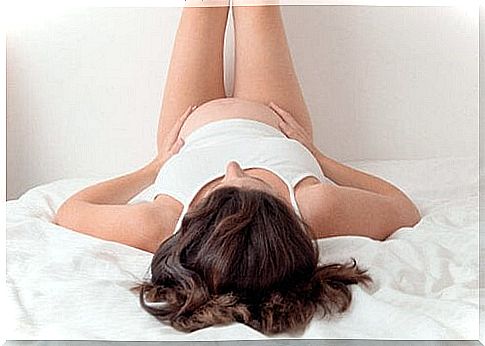
Polymorphic eruption
This is possibly the most common skin irritation during pregnancy and its incidence is much higher in first-time mothers and pregnancies with twins. Being overweight increases the likelihood of this rash.
It is defined as a very intense and almost unbearable itchy skin that causes large lesions on the skin. These lesions are palpable to the touch and have a reddish color. They occur on the hips, abdomen, arms and legs and it causes stretching of the skin during pregnancy.
Treatment of polymorphic outbreaks:
The ultimate cause of this is parakeratosis, the formation of cells in the skin that alter the natural keratin, causing overheating and itching. The treatment is based on powerful, topical corticosteroids, which are applied to the lesions several times a day.
Folliculitis
This is a rash of pimples that is accompanied by itchy skin. Furthermore, it can occur anywhere on the body of the pregnant woman. It is noticed during the second trimester, and often disappears after birth. Its cause is attributed to acne and hormonal reactions.
Treatment of folliculitis
Corticosteroids should be applied to the skin during pregnancy. Benzoyl peroxide and ultraviolet B therapy are also recommended.
Prurigo
The incidence of prurigo is higher during the first trimester of pregnancy. It produces tangible and swollen lesions that take the form of dents. It is common for them to occur on the arms and legs, creating intense, itchy skin.
Treatment of prurigo:
There is no direct effect on the fetus when using corticosteroids, so it is the most effective treatment. Antihistamines can also be used if you experience increasing, itchy skin that exceeds the pregnant woman’s ability to resist.
Pregnancy cholestasis
The violent itching of the skin is characteristic of this disorder and its intensity is so violent that you can cause harm to yourself from scratching. In other words, the skin lesions do not occur due to itching, but from the actions of the nails to relieve the itchy skin. Furthermore, the itching can spread to the hands.
In some cases, the skin becomes, to some extent, yellowish. This is known as jaundice. The cause comes from the liver, which secretes a substance called bromosulfataleine. The increase in estrogen during pregnancy is also involved.
Treatment of gestational cholestasis:
After a blood test, you will see an increase in alkaline phosphatase, transaminases and bilirubin. Therefore, the treatment will be based on resincholestiramine and antipruritic, in addition to ursodeoxycholic acid.
In most cases, the prognosis for the expectant mother will be good. The skin may be marked during pregnancy, but it is more due to scratching than the condition itself.
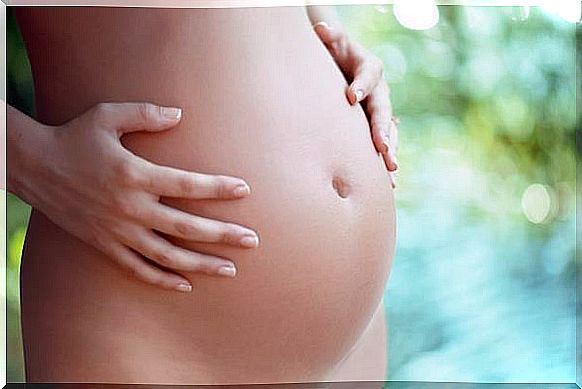
Precautions for itchy skin during pregnancy
It is important that you take care of yourself as best you can during pregnancy. That way, you can avoid things that can give you great discomfort.
For example, you should:
- Cleanse your body, extremely thoroughly
- Moisturize well by drinking enough, fresh water
- Improve hydration with moisturizing creams
- Protect yourself from the sun
- Wear cooling clothes
- Avoid fatty foods
- Avoid highly perfumed creams or those that contain alcohol
Finally, it should be considered normal for your skin to change during pregnancy. Your stomach begins to grow and this causes the tissue in the skin to begin to relax, which is why stretch marks often occur.
Heat and sweat can also irritate these folds, which can cause more itching. Keep in mind that most will disappear after birth and you can use substances or creams that can restore your skin.

